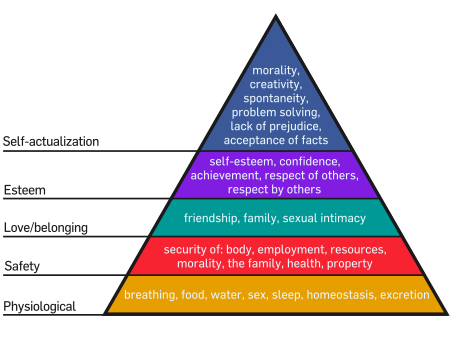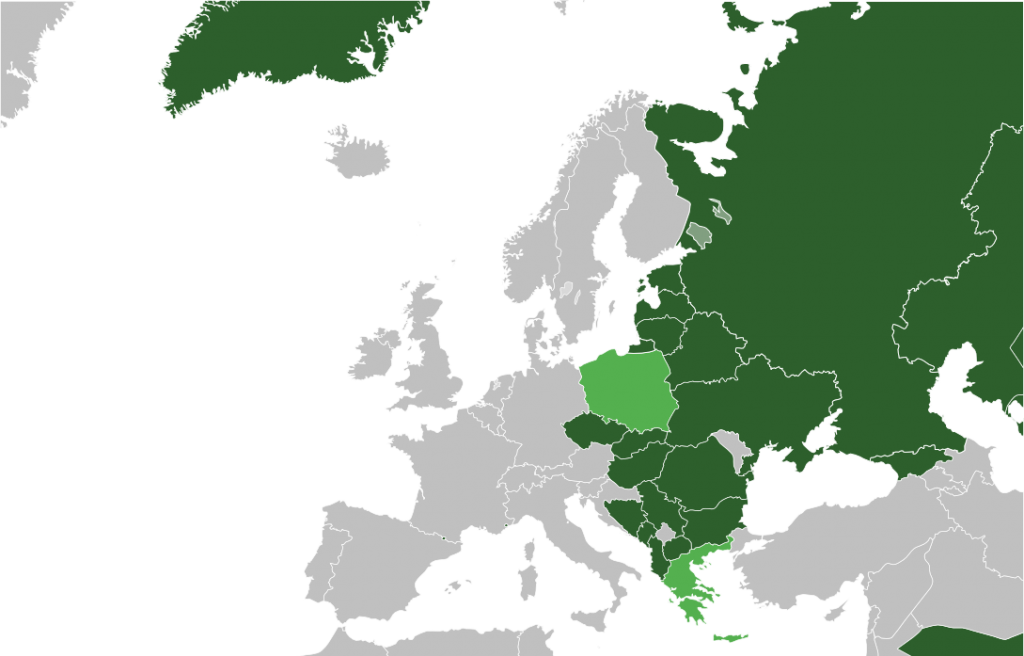Distributive justice
Discussion
With the wealth gap in mind, some people cry out for distributive justice. Is it possible? Yes, it is! The world has one closed ecosystem left that is a model unit for distributive justice: North Korea.
The principle is similar to western Europe: those who want average wealth give an average contribution to society - with the small difference that we have more options. We can self-actualise secondarily through education and primarily through contribution to society. Creation of value is unlimited!
Everywhere, where there's freedom for self-fulfilment, there's no ground for distributive justice.
Shame that North Korea plans to open up for free economy. How can I then show my next socialist how distributive justice works?
The principle is similar to western Europe: those who want average wealth give an average contribution to society - with the small difference that we have more options. We can self-actualise secondarily through education and primarily through contribution to society. Creation of value is unlimited!
Everywhere, where there's freedom for self-fulfilment, there's no ground for distributive justice.
Shame that North Korea plans to open up for free economy. How can I then show my next socialist how distributive justice works?
Socialism is just the secondary product imo. I don't think that there are many Northkorean people who have some sort of political persuasion. Grappling with different political models is too much into self-actualisation, which means that one could get happier than the other by being more successful in attending their needs. That would be unfair towards the other Eloi 

speedy_thrills said:
I was trying to hypothesis where "everywhere" may be located and what self-fulfillment really is or means to humans.
There is always that tried and true discrediting argument for advocates of both capitalist and socialist ideology. In the real-world your ideas don't work, it's the moderates who are the successful pragmatists.
The argument for distributive justice (by which I don't mean strict egalitarianism) is simply that the economic model societies have (governed by laws, policies, social convention and institutions) result in a differing benefits and burdens across it's members. We continue to asses and re-asses the manifold complexities of society but, despite much debate and self-delusion, we've not found a direction that better achieves our aims as a society.
You cannot argue that this model is a contemporary imposition either as sub-arguments have preoccupied the intellectual classes for generations. One of my favorite examples is the General Welfare clause in the U.S. constitution and later defined in the Alexander Hamilton's "Report on Manufacturing" where Hamilton argues for a distributive justice to prevail such that manufacturing could flourish while James Maddison argued that the U.S. should continue without such impositions and remain a ruggedly individualist agrarian society.
To clarify, freedom for self-fulfilment is where one is not limited on what to read, learn or achieve. Ie., in the UK the limits are mostly set to where one limits third parties. For example, you might own and read Hitler's 'Mein Kampf', but you must not discriminate or limit others.There is always that tried and true discrediting argument for advocates of both capitalist and socialist ideology. In the real-world your ideas don't work, it's the moderates who are the successful pragmatists.
The argument for distributive justice (by which I don't mean strict egalitarianism) is simply that the economic model societies have (governed by laws, policies, social convention and institutions) result in a differing benefits and burdens across it's members. We continue to asses and re-asses the manifold complexities of society but, despite much debate and self-delusion, we've not found a direction that better achieves our aims as a society.
You cannot argue that this model is a contemporary imposition either as sub-arguments have preoccupied the intellectual classes for generations. One of my favorite examples is the General Welfare clause in the U.S. constitution and later defined in the Alexander Hamilton's "Report on Manufacturing" where Hamilton argues for a distributive justice to prevail such that manufacturing could flourish while James Maddison argued that the U.S. should continue without such impositions and remain a ruggedly individualist agrarian society.
A popular theory describes the meaning of self-fulfilment:

Maslow describes it as the top of human's hierachy of needs; ie. the stage you reach when all other needs are already served.
In my opinion, in the western European society, this is often done within a career or private interests. For example, people try to solve other people's problems professionally; even if it means they have to sacrifice their private time; or non-professionally, people learn Japanese, just because they're interested in Japanes culture, or train for better times running, because their desire is expressed athletically. Else, some people might find their self-fulfilment in contributing to society; and being honoured by receiving value back: money with which they're free to do what they want.
Parents spend money for their kids so that they have great experiences; Bill Gates likes to donate for cancer research, footballers like to have a flashy car and a high-maintenance wife.
The high-performers of Northkorea are still working on Marslow's pyramid's bottom. They have to spend effort every day to get enough nuitrition. Equally to Northkorea's low performers. There is not a lot to distribute, because people are not motivated to contribute to society.
Isn't the call for distributive justice just placed by the few people that are motivated to contribute without monetary compensation, and the ones that only contribute below average?
Ozzie Osmond said:
mondeoman said:
Ozzie Osmond said:
PH clarification:
Does the term "socialist" now include everyone except the most extreme right-wing nutters?
No, a "socialist" is anyone who thinks that taxing "the rich" a higher percentage than anyone is isn't wrong.Does the term "socialist" now include everyone except the most extreme right-wing nutters?

http://en.wikipedia.org/wiki/Flat_tax
Gassing Station | News, Politics & Economics | Top of Page | What's New | My Stuff



